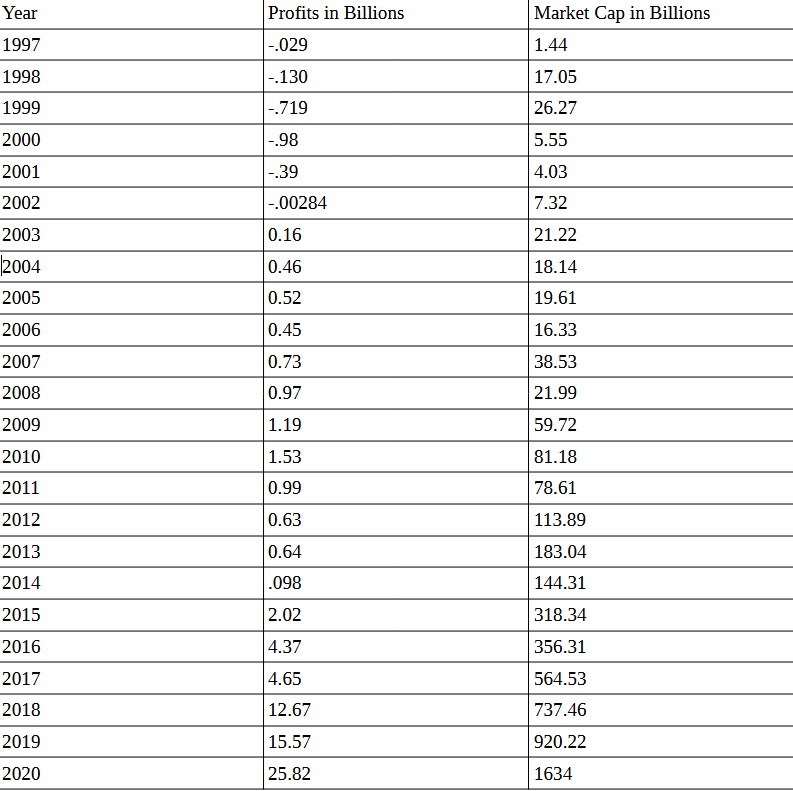Rule 10: Tax Thine Enemies
Want to balance the budget? Tax the woke progressives and other enemies of The American Way.
Back in the 1980s Ronald Reagan and the conservatives in Congress worked mightily to lower the top marginal tax rates. Many new fortunes were made. But were the new billionaires thankful for being allowed to keep their earnings? NO!! They turned into a bunch of hypocritical virtue signalers and sponsored Wokeness and the Great Reset to boot. It's like we're living in None Dare Call it Conspiracy Part 2 -- This Time the Neckties are Coming Off!
So when Warren Buffet or one of his ilk says he isn't taxed enough, agree with him! Give him the taxation he says he deserves. Give it to him good and hard, so hard he starts voting Libertarian in agony.
But do NOT vote for bringing back the high marginal tax rates on earned income that we had pre Kennedy! That's a trap! That would only make Buffet, Bezos, Gates, etc. into permified aristocrats. Always keep in mind that income taxes hit those who are getting rich, not those who are rich. And this goes double plus for high income taxes on earned income.
So instead of cranking up the top rates to criminal levels, let's start by closing some loopholes. Let's start by making municipal bonds taxable; let municipalities fund retirement accounts instead of trust funds for able-bodied trustafarian activists. And then let's do something about capital gains, such as tax it progressively--
"WAH! DOUBLE TAXATION!! WAAAAAHHHHHHH!!!!"
I believe I detect crocodile tears coming from the Country Clubbers. Please! Go buy yourself a binkey or a Bently and calm down. I'll deal with double taxation in a bit. I need to first deal with those who have real cause for griping: small business owners and farmers with forests.
The Original Purpose of the Income Tax
Once upon a time, the US federal government was funded by consumption taxes: tariffs and excises. Since the rich earn more than they need, they can defer consumption with little pain. A purely consumption tax based system is thus regressive. With the rising wealth gap of the Guilded Age, the voters amended the constitution in order to allow a federal income tax -- primarily as a surcharge for the rich. The top tax bracket (7 percent) was seven times higher than the lowest bracket (a mere one percent).
The rate went up by one percentage point per bracket, and the brackets were wide apart: 0, $20,000, $50,000, $75,000, $100,000, $250,00, and $500,000 for a married couple in 1913. Based on the CPI, prices have gone up by roughly a factor of 30 since 1913. So in today's dollars the brackets would be, $0, $600,000, $1,500,000, $2,250,000, $3,000,000, $7,500,000, and $15,000,000. (The tables do not include the personal exemption. According to Wikipedia, it was $4,000 for a married couple in 1913. So make that $120,000 in today's dollars.) As of 2021, the top bracket starts at $628,301 for a married couple, a factor of over 20 times lower than the original top bracket. And the difference between the bottom and top rates is a factor of 3.7 instead of 7.
Our income tax system is no longer all that progressive, and we have returned to Guilded Age wealth gaps. On the upside this gap allows tycoons to have personal space programs. On the downside we have Marxist rumbling among the masses and Wall St. trying to buy them off with ESG nonsense. But at least we have an enormous federal government and a federal debt that threatens national bankruptcy.
The upside of an income tax over just tariffs and excises, is that the federal government can raise way more money. The downside is that politicians are so greedy that even this windfall is not enough. That surcharge on the super rich turned into confiscatory taxation for nearly everyone in short order. By the time we got to 1960, the bottom rate was 20% and the top rate was a ridiculous 91%. A married couple hit that top rate with a taxable income of $400,000 in the dollars of the day, or about $4,000,000 in today's dollars. (The personal exemption for a married couple was $1200, or about $12,000 in today's dollars, a tenth of what it was in 1913.)
Look at Hollywood's portrayal of Corporate America during the 1950s. Executives had luxurious offices complete with liquor cabinets and hot secretaries. Deference to the higher ups was a big deal. Because the top tax rates were so astronomical, executives were paid in perks and power.
But not all rich people paid those astronomical rates. There were loopholes, including the same loophole which gives Jeff Bezos and Warren Buffet a lower tax rate than your family doctor.
The Biggest Loophole
Thanks to the magic of inflation, being a millionaire is no longer a big deal. It's roughly the amount of money one needs to save in order to retire on a middle class income. A four percent annual draw on a million dollars in savings is $40,000/year, which is less than the median family income. On the other hand, a million dollars per year is still serious money.
Unfortunately, most attempts at a progressive income tax system fail to properly make this distinction. For those who make steady salaries, treating income in one year increments works well to sort the rich from the regular. For those who make unsteady incomes, a progressive income tax based on annual incomes becomes quite unfair. Consider the case of someone who builds a business and then sells the business. During the initial stages of building a business, income can be zero or even negative. But upon selling the business, income can be in the millions.
There is a similar problem for farmers who own forest as part of the farm. A forest can take decades to before it is time to harvest. When that harvest year does arrive, the farmer experiences a very large spike in income.
Our politicians recognized the problem -- sort of -- and sort of fixed it by setting the long term capital gains rate to be lower than the ordinary income rate. During the 1950s, the top capital gains rate was 25-26%, which was way less than the top ordinary income rate. Indeed, it wasn't much higher than the bottom ordinary income tax bracket of 20%, and as noted above, that 20% bracket cut in after $1200 for a married couple (or $12,000 in today's dollars). If you could make your income look like capital gains, the tax system was basically flat!
According to the IRS, the current long term capital gains brackets are 0% for up to $94,050, 15% for $94,050 to $583,750 and 20% above $583,750 (with some special situations which can be taxed as high as 28%.)
Our Silicon Valley Overlords pay a 20% income tax. They can thus afford to be as liberal a Bernie Sanders.
Once you figure in Social Security taxes, Joe Sixpack's marginal tax rate is about the same as Jeff Bezos'.
A Better Fix
Capital gains tend to be much more uneven than other forms of income. Setting brackets based on annual values can thus be extremely unfair. The simplest fix is to base the capital gains brackets on lifetime capital gains. Spread the brackets apart. Make the brackets at least ten times wider than the brackets for ordinary income. Suppose we have bracket changes at every rough factor of two, go up 5% for each bracket and make the first bracket a nice even million dollars wide for a married couple. You get:
Hmmm, these rates get kind of brutal on the top end. Maybe they should be capped at the top ordinary income bracket. Maybe the brackets should get even fatter at the upper reaches.
Or maybe we should have a special tax break for investing in space travel. Given the political behavior of billionaires other than Elon Musk these days, the rates above look kind of appropriate. What think ye?
Imperfections and Details
Things get bit weird when you have a billionaire on his third trophy wife. Whose lifetime exemption do you use? Given the weakness of marriage in America, I think the simplest way to go is to stick with individual lifetime brackets. If a billionaire marries a new wife and they treat their income as shared, then half the capital gain is taxed at her brackets and half at his.
We could also treat inheritances and gifts as equivalent to capital gains and thus eliminate the federal estate tax, special gift tax, etc.
Note that using a lifetime exemption is imperfect. There is a big difference between a child who inherits a million dollars and a small business owner who sells his business upon retirement. And then there is the problem of sports figures and beauty based celebrities who make most of their money early in life. They receive an ordinary income that is spiky. Originally, I was going to propose an income tax system which replaced brackets with stacked flat taxes, with each layer having a higher personal exemption, where unused exemptions could be carried over. But the system was too hard to explain, so I am sticking with just treating long term capital gains (and inheritances) in a special fashion.
Imperfect, but far more fair than what we have today. And we can make it even simpler by making capital gains completely separate from ordinary income. No using capital losses to offset ordinary income.
With long term capital gains finally being treated fairly, we could clean up all sorts of provisions in our current tax code. For example, would we need special retirement accounts? And with that bottom bracket at a mere five percent, do we need a special exemption for home sales?
But DOUBLE TAXATION!
Uh oh! I hear the lamentations of another Lavender RINO.
Yes, corporations pay taxes. And yes, I want to keep the corporate income tax. Without a corporate income tax, there is no incentive for corporations to report their expenses, including the salaries of their executives. (Also, I want to make the corporate income tax progressive. I want to see more corporations, and a truly progressive corporate income tax would give Wall St. incentives to break up some bloated behemoths. More on this when I get to Rule 13: Reinvent Antitrust.)
But here's the deal: growth corporations earn far more income than is reported to the IRS. Thanks to accelerated depreciation and deductions for R&D, a profitable corporation can show a loss for tax purposes by reinvesting current profits into business expansion. Let's take Amazon.com for instance:
From 1997 to 2020, Amazon earned 71 billion dollars, yet the company valuation went from $1.4 billion to $1.6 trillion. That change in value is over 20 times retained profits.
Some of that change in market cap is market expectations, of course, but clearly the company took on objective properties to justify a good bit of the market's revaluation. A significant part of the expenses were actually investment in growth. A growth company is much like a regular IRA, but without the savings cap.
Jeff Bezos is not double taxed when he cashes in any of his Amazon stock. Indeed, he is grossly undertaxed compared to the penalties Joe Sixpack would suffer if he deferred paying taxes on most of his income over a 23 year period.
Capital Gains Tax + Inflation = Federal Property Tax
Another argument against capital gains taxes is that when inflation is happening, an asset which simply holds its constant dollar value looks like it gained value in nominal dollars. The tax on this gain due to inflation is thus a deferred property tax, vs. a true income tax. (This is also true for taxes on interest, by the way. Most of the interest earned on conservative interest bearing vehicles is simply the income necessary to keep up with inflation. Treasury bills are basically cash.) I have two arguments against this objection.
First, property taxes are more just than income taxes. The protection of property is a core government function. Fees for services rendered, Muffy!
Second, I want the elite to hate inflation as much as I do. Let the Wall Street wizards and the Silicon Valley overlords dust off their Austrian Economics tomes and lobby for a return to a gold standard. And since a gold standard requires a more or less balanced federal budget, let them join Elon in calling for a balanced budget while they are at it. Bwahahahaha!
More to Come
Taxing the ultra rich properly is just the start. There are other enemies who deserve to pay more. And not all tycoons and trustafarians are evil equally. A few of them are even good on the net, politically. So in the weeks ahead I will suggest excise taxes and loophole closures which fall most heavily on the worst of the worst. I will also show how to use the tax code put an end to our excess immigration woes.
Finally, I will show how to radically simplify the tax code. Many of the exemptions, loopholes, and clawbacks are Band Aids attempting to offset the fundamental defects pointed out in this chapter. The complexity of our current tax code falls most heavily on small businesses. For the smallest of businesses, tax filing hassles can be one the biggest expenses and founder distractions. To move away from managerialism, we need more businesses with definite owners. That means more millionaires, but maybe not as many near trillionaires.








The income tax doesn't apply to most people's earnings, only to those earnings which are effectively connected with exercise of federal privilege. The purpose of it is to help the Federal government fund itself through productive projects and profitable businesses which it can initiate and create.
So your section on that needs some correction. The income tax on "All That Comes In" is a myth.
I've written about this:
https://open.substack.com/pub/asodhani/p/income-tax-brief
Interesting! I expect soon we will be seeing how to get the taxmen throw at the NGOs. Especially foreign funded (or laundered) ones! 😉😁😁